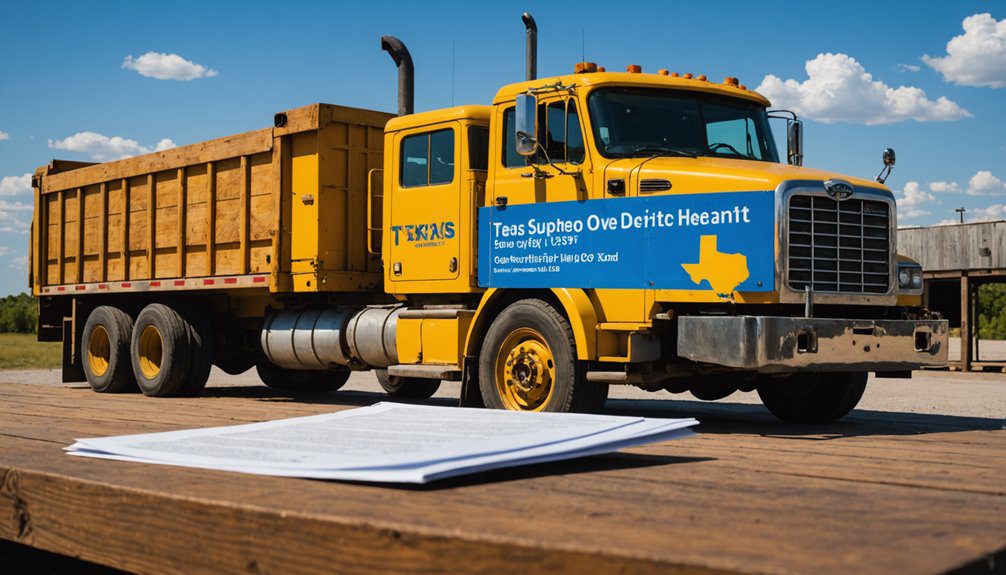When you're navigating the complexities of transporting oversized loads in Texas, understanding the Super Heavy or Oversize Permit Bond becomes essential. This bond not only ensures compliance with state regulations but also provides a safety net against potential damages and violations. You might wonder about the eligibility requirements or how to streamline the application process effectively. As you consider these factors, keep in mind that the right approach can significantly impact your operation's success and credibility. So, what steps should you take next to secure this crucial bond?
Understanding Oversize Permits
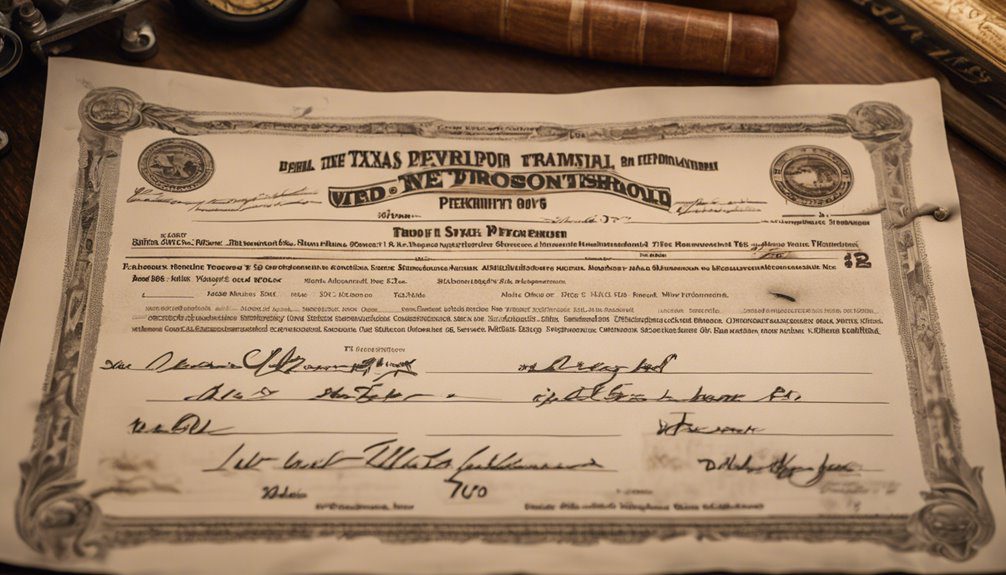
When you're planning to transport oversized loads, understanding oversize permits is crucial. These permits are essential for ensuring that your transport operation complies with state and local regulations. Without the proper permits, you risk facing hefty fines, delays, or even the inability to complete your shipment.
To obtain an oversize permit, you'll need to provide specific details about your load, including dimensions, weight, and the route you plan to take. Each state has its own regulations, so it's important to familiarize yourself with Texas requirements if you're operating there. Be prepared to submit your application well in advance to avoid last-minute issues.
You'll also want to consider the timing of your transport. Some permits are only valid during certain hours or days to minimize disruption to traffic. In Texas, for example, transporting oversized loads may be restricted during peak travel times or holidays.
Lastly, always keep a copy of your permit with you during transport. Law enforcement may request to see it, and having it on hand can save you from unnecessary complications on the road.
Understanding these key aspects will help streamline your transportation process.
Importance of Permit Bonds
Although you might focus on obtaining the necessary permits for your oversized load, understanding the importance of permit bonds is equally essential. A permit bond serves as a financial safety net, ensuring compliance with regulations and protecting public interests.
When you secure a permit bond, you're essentially guaranteeing that you'll adhere to the laws governing oversized transport. This bond provides reassurance to local authorities that you'll address any potential damages or violations that may arise during transport.
If something goes wrong—like property damage or non-compliance—you'll have the financial backing to cover those costs. This not only protects you but also helps maintain good relationships with local governments and communities.
Moreover, having a permit bond can enhance your business's credibility. It shows clients and partners that you're serious about compliance and willing to take responsibility for your actions.
In a competitive industry, this can set you apart from others who might overlook this crucial aspect. Additionally, understanding the specific requirements for superheavy or oversize permit bonds can further streamline your permitting process and ensure compliance.
Eligibility Requirements
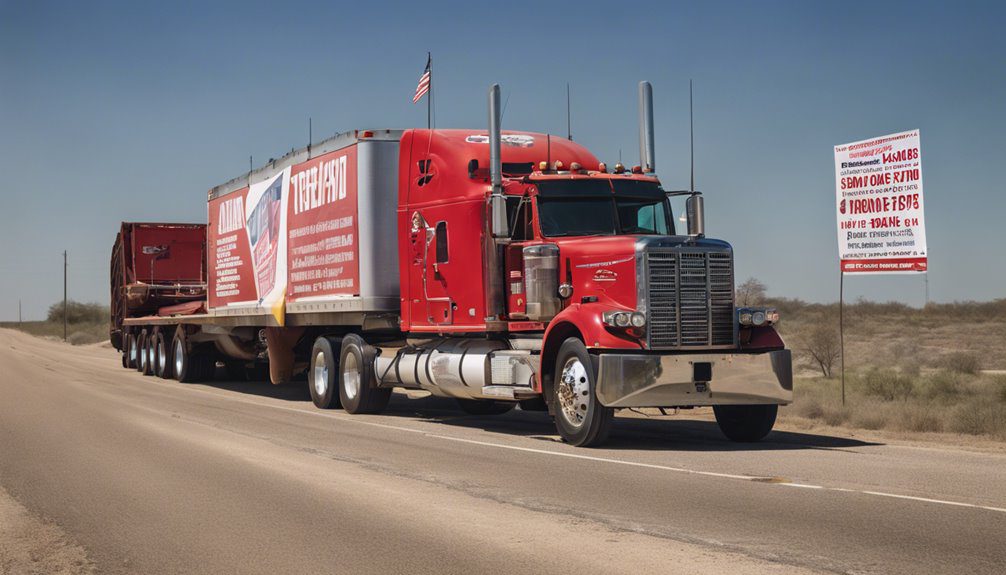
To qualify for a Texas Super Heavy permit bond, you must meet several eligibility requirements. First, you need to have a valid commercial driver's license (CDL) and maintain a clean driving record. This shows that you're responsible and capable of handling oversized loads safely.
Additionally, your vehicles must comply with state regulations, including proper registration and insurance coverage.
You'll also need to provide proof that your hauling activities are legal and that you're operating within the guidelines set by the Texas Department of Transportation (TxDOT). This may involve showing that you have the necessary permits for the type of cargo you're transporting, especially if it exceeds standard dimensions or weight limits.
Another key requirement is financial responsibility. You might need to demonstrate that your business has sufficient resources to cover potential damages or liabilities that could arise during transport. This ensures that you can fulfill the obligations tied to the bond.
Lastly, you should be prepared to work with a surety company that issues the bond. They'll evaluate your eligibility based on the above criteria and your overall risk profile.
Meeting these requirements is crucial to obtaining your permit bond efficiently.
Application Process
Navigating the application process for a Texas Super Heavy permit bond involves several key steps to ensure you meet all necessary requirements.
First, gather all relevant documentation regarding your vehicle, including its dimensions, weight, and any applicable registration details. This information is crucial for accurately completing your application.
Next, you'll need to fill out the application form provided by the Texas Department of Transportation (TxDOT) or your local authority. Make sure to double-check your entries for accuracy, as any discrepancies can delay the approval process.
Once you've completed the application, submit it along with any required documentation.
After submitting your application, anticipate a review period during which TxDOT evaluates your request. They may reach out for additional information or clarification, so be prepared to respond promptly.
If your application is approved, you'll receive your permit bond, allowing you to proceed with your heavy haul.
Lastly, keep a copy of your permit bond on hand while operating your vehicle, as you may need to present it during inspections.
Following these steps will help ensure a smooth application process for your Texas Super Heavy permit bond.
Costs Involved
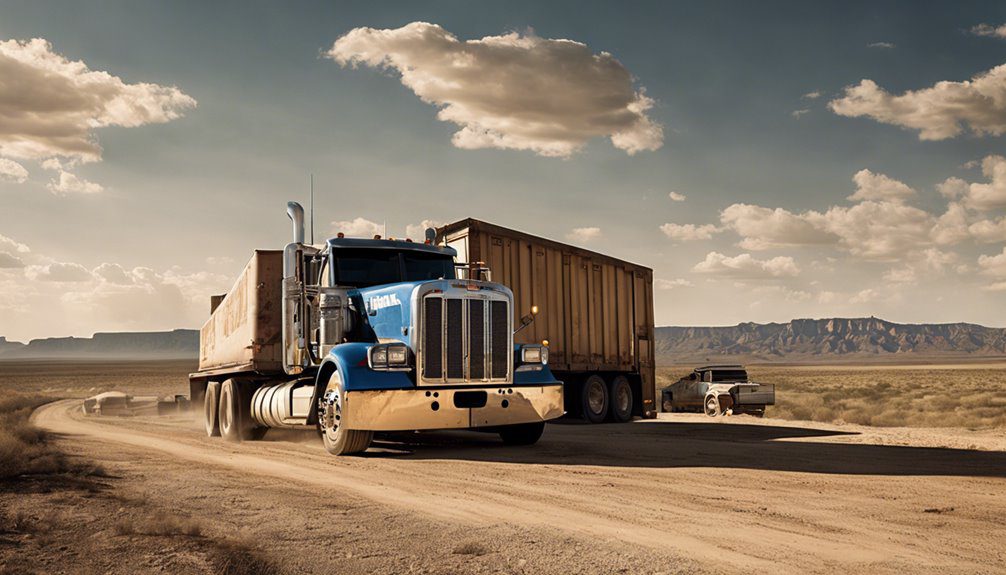
Once you've submitted your application for a Texas Super Heavy permit bond, it's important to understand the costs involved before you hit the road.
First, you'll face the premium for the bond itself. This amount can vary, typically ranging from 1% to 10% of the total bond amount, depending on your credit score and the specific details of your application. A higher bond amount means a higher premium, so keep that in mind.
Additionally, there may be fees associated with the application process. These can include administrative fees or costs for additional documentation.
You should also consider potential costs for inspections or permits required by local jurisdictions.
Don't forget about the cost of compliance. If you're hauling oversized loads, you'll need to invest in proper equipment and possibly hire a pilot car for escorting, which can add up quickly.
Lastly, always factor in potential fines for non-compliance with local regulations.
Bond Coverage Details
Understanding the bond coverage details is crucial for anyone applying for a Texas Super Heavy permit bond. This bond serves as a financial guarantee that you'll adhere to local regulations and laws while transporting oversized loads. Typically, the bond amount ranges from ,000 to $100,000, depending on the specific requirements for your route and load size.
When you secure a bond, it protects the state and local authorities against any potential damages or violations incurred during your transport. If you fail to comply with the permit terms or cause harm, claims can be made against your bond. It's essential to know that you're responsible for covering any claims up to the bond amount.
Additionally, the bond remains active for a specified period, often one year, and must be renewed to continue coverage. Louisiana Surety Bonds can provide insight into the various types of bonds required for different jurisdictions.
Make sure you understand the terms and conditions outlined in your bond agreement, as they may affect your obligations.
Common Violations
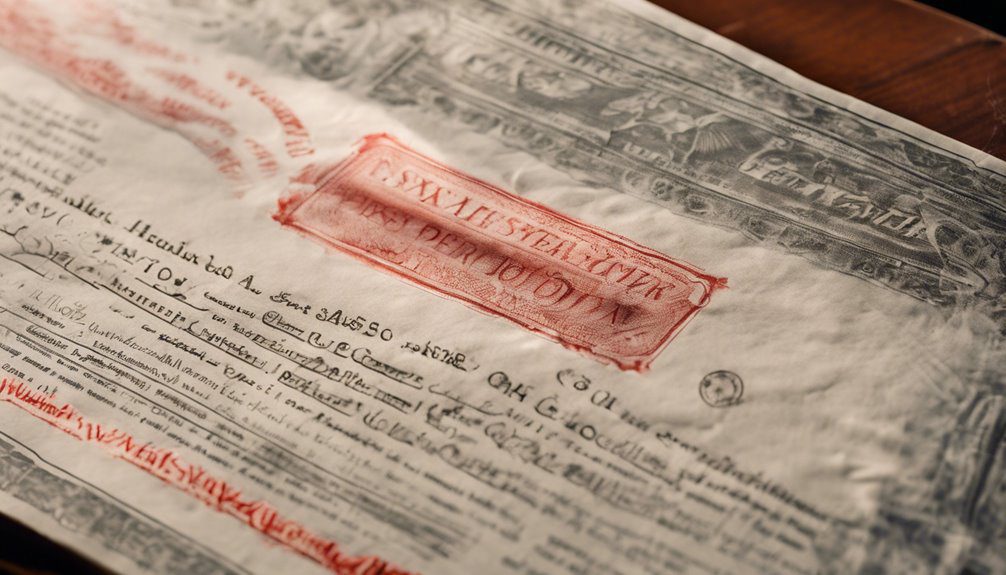
When transporting oversized loads under a Texas Super Heavy permit, it's important to be aware of common violations that can lead to penalties or claims against your bond.
One major violation is exceeding the specified weight limits. Make sure you know the maximum allowed weight and stay within those guidelines to avoid fines and bond claims.
Another common issue arises from improper signage and flags. You must display the appropriate warning signs and use flags correctly to alert other drivers of your oversized load. Failing to do so can result in costly penalties.
Additionally, don't overlook the importance of following designated routes. Each permit outlines specific routes for oversized loads, and straying from these can lead to violations. Ensure you're familiar with any restrictions on roadways, bridges, or tunnels that may not accommodate heavy loads.
Lastly, consider time restrictions. Certain permits may limit when you can transport your load, especially during peak traffic hours. Ignoring these restrictions can lead to legal repercussions.
Renewal and Maintenance
Maintaining your Texas Super Heavy permit bond is crucial for ensuring compliance and smooth operations. To keep your bond active, you'll need to stay on top of renewal dates. Typically, these bonds must be renewed annually, so setting a reminder a month in advance can help you avoid any lapses.
Check with your bonding company to understand the specific renewal process. They may require updated documentation or proof of continued compliance with state regulations. It's essential to keep your insurance coverage current as well, since a lapse in coverage can affect your bond status.
Once you've renewed your bond, review your operational practices to ensure you're adhering to all legal requirements. This proactive approach not only helps you avoid penalties but also builds a solid reputation in the industry.
Additionally, maintain open communication with your bonding agent. They can provide insights into any changes in regulations or requirements that could impact your bond.
Resources for Transporters
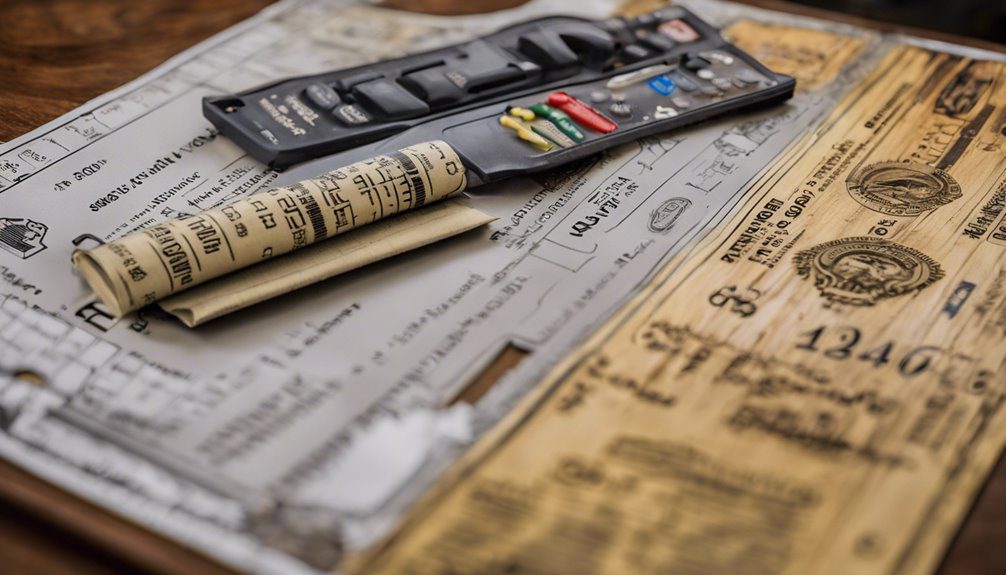
For transporters navigating the complexities of hauling super heavy loads in Texas, having the right resources at your fingertips can make all the difference.
First, familiarize yourself with the Texas Department of Transportation (TxDOT) website. It's packed with information on permits, routes, and regulations specific to oversized loads. You'll find guidelines on obtaining the necessary permits and understanding the associated fees.
Next, consider joining industry associations like the Specialized Carriers & Rigging Association (SC&RA). These organizations offer valuable networking opportunities, training, and updates on industry best practices. They can also help you stay informed on changing regulations that affect your operations.
Don't forget about technology! Utilize route planning software designed for oversized loads. This can help you identify the safest and most efficient paths, avoiding obstacles and ensuring compliance with local laws.
Lastly, connect with experienced transporters. They can provide insights and share their firsthand experiences, helping you navigate challenges more effectively. Additionally, ensure you are aware of the bond requirements that may apply to your operations, as these can vary by state and are essential for compliance.
With the right resources, you'll be better equipped to manage your super heavy hauling needs in Texas, ensuring a smoother, safer, and more efficient operation.
Conclusion
In summary, securing a Texas Super Heavy or Oversize Permit Bond is essential for anyone transporting oversized loads. It not only ensures compliance with state regulations but also boosts your credibility as a transporter. By understanding the requirements, navigating the application process, and staying informed about potential violations, you can protect your business and ensure smooth operations. Don't overlook the importance of this bond—it's a key step toward responsible and efficient transport.
